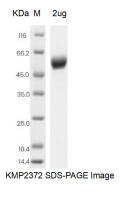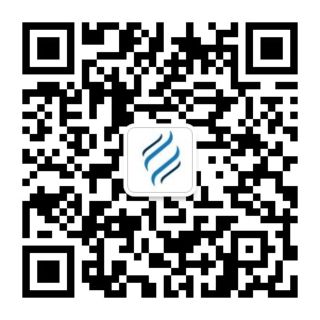Human CD137 Protein, Fc Tag, His Tag
-
产品编号
KMP2372
-
别名
肿瘤坏死因子超家族受体9, CD137, ILA
-
规格
- 50ug
- 100ug
- 200ug
| Alias | 肿瘤坏死因子超家族受体9, CD137, ILA |
| Catalog Number | KMP2372 |
| Product Description | The Human CD137 Protein(KMP2372) is produced in HEK293 Cells and the target gene encoding Leu24-Gln186 is expressed with a Fc, 6His tag at the C-terminus. |
| Molecular Name | CD137 |
| Species | Human |
| Host | HEK293 Cells |
| Size | 50ug, 100ug, 200ug |
| Purity | >95% as determined by SDS-PAGE |
| Purification | Affinity purification |
| Endotoxin | <1.0 EU/ug determined by the LAL method |
| Formulation | PBS, pH7.4 |
| Background | Tumor necrosis factor receptor superfamily member 9(TNFRSF9) is an inducible T cell surface protein belonging to the TNF receptor superfamily. It is a single-pass type I membrane protein which contains 4 TNFR-Cys repeats. The human and mouse proteins share 60% amino acid sequence identity. It is absent from naive T cells, but upregulated and continually expressed following T cell activation. It is a receptor for TNFSF9/4-1BBL, and possibly active during T cell activation. |
| SDS-PAGE |  |
| Predicted Molecular Weight | 18.11 kDa |
| Storage Condition | Aliquot and store at -20℃ to -80℃. Avoid repeated freezing and thawing cycles. |
| Shipping Condition | In general, the proteins are provided as lyophilized powder which are shipped at ambient temperature. They are shipped out in dry ice if supplied in liquid form. |
| Uniprot ID | Q13077 |
| References | 1.FEBS Lett. 468:129-133 (2000) 2.Eur. J. Immunol. 36:199-206 (2006) 3.Genes Cells 13:509-520 (2008) 4.Oncogene 28:1769-1781 (2009) 5.Mol. Immunol. 46:3278-3282 (2009) 6.Mol. Cell 38:101-113 (2010) |
| Function | Adapter molecule that regulates the activation of NF-kappa-B and JNK. Plays a role in the regulation of cell survival and apoptosis. The heterotrimer formed by TRAF1 and TRAF2 is part of a E3 ubiquitin-protein ligase complex that promotes ubiquitination of target proteins, such as MAP3K14. The TRAF1/TRAF2 complex recruits the antiapoptotic E3 protein-ubiquitin ligases BIRC2 and BIRC3 to TNFRSF1B/TNFR2. |





 0
0
